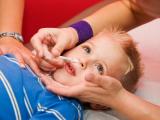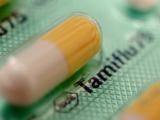Sep 20, 2012 (CIDRAP News) – The European Centre for Disease Prevention and Control (ECDC) today confirmed a link between narcolepsy and pandemic 2009 H1N1 vaccination in children in Finland and Sweden, the two countries that originally reported a problem with the vaccine.
The agency summed up an extensive epidemiologic investigation in a technical report. The investigation combined two different studies conducted by the ECDC and the Vaccine Adverse Event Surveillance and Communication (VAESCO) Consortium and includes a group of countries that reported possible pandemic vaccine–linked narcolepsy cases and ones that have not: Denmark, Finland, France, Italy, the Netherlands, Norway, Sweden, and the United Kingdom.
One study looked at the background rates of narcolepsy, and the other was a case-control study conducted to tease out risk factors.
The full 159-page report and a summary of the findings are available on the ECDC's Web page. Only one vaccine has been linked to the narcolepsy cases, Pandemrix, made by GlaxoSmithKline, which contains the company's proprietary AS03 adjuvant.
ECDC's probe follows a preliminary report that confirmed the narcolepsy link to the pandemic vaccine in Finland. The link first came to light in August 2010 when a Finnish pediatric neurologist noted a slight rise in narcolepsy cases. Around the same time, Swedish experts noticed a similar pattern in kids who had received Pandemrix.
In July 2011 European drug regulators reviewed the link and recommended a labeling change that limited the vaccine's use in children and teens to instances in which protection for the 2009 H1N1 virus was needed and other seasonal trivalent vaccines weren't available.
To conduct the background study, investigators used eight large linked healthcare databases from seven countries. They found that before 2009 H1N1 vaccination campaigns, narcolepsy incidence over a 10-year period was stable, about 0.85 diagnoses per 100,000 population, with rates that were lower in kids.
For the case-control study, researchers used a common protocol, case report form, and case definition, and they had detailed instructions for collecting data.
They found that new cases of narcolepsy reported after the pandemic vaccine launched in the fall of 2009 increased significantly in Sweden and Finland compared with other countries. They found no increased incidence in the Netherlands, the United Kingdom, and Italy, though they noted that vaccine uptake in children ages 5 to 19 was low in those countries.
A strict primary analysis to avoid biases such as media awareness and diagnostic awareness effects found no significant risk to kids in countries apart from Sweden and Finland.
A sensitivity analysis based on onset of excessive daytime sleepiness before media attention, however, found an increased risk of narcolepsy in kids following 2009 H1N1 vaccination both in countries that had and hadn't reported a problem with the vaccine. A similar analysis suggested an association in adults before awareness increased in countries that hadn't reported a vaccine-narcolepsy link.
The group recommended further studies that boost statistical power by including more cases collected from the period before awareness increased and including more European countries that had significant vaccine coverage, such as Ireland. In April, Ireland's health department reported a 13-fold greater risk of narcolepsy in kids who received the Pandemrix vaccine.
The investigators also suggested that an understanding of the vaccine-narcolepsy link could be strengthened by pooling national studies that weren't included in today's report, such as sleep-study–based investigations and those from Ireland, the United Kingdom, and Germany.
The researchers also recommended expanding the investigation to countries outside Europe—such as Canada and Brazil—that used pandemic vaccine with the AS03 adjuvant but didn't have as much media attention about the narcolepsy link.
Future studies should also assess possible links in countries that used different 2009 H1N1 vaccines, adjuvanted and unadjuvanted, the authors concluded.
See also:
Sep 20 ECDC press release on the report
Sep 20 ECDC technical report summary
Sep 20 ECDC full technical report
Apr 19 CIDRAP News Scan "Ireland reports Pandemrix links to narcolepsy in kids, teens"


















